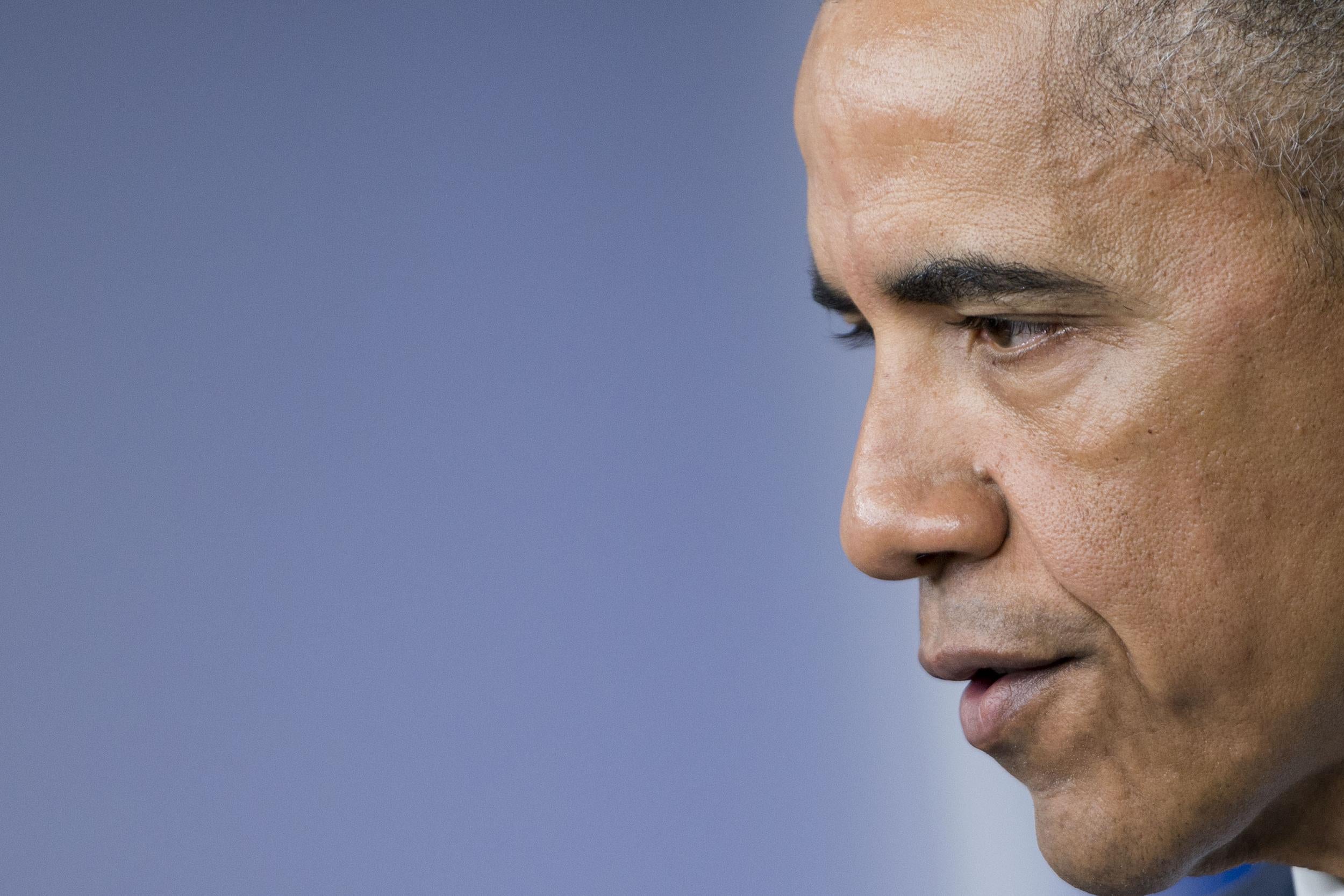Minnesota, Ferguson, Louisiana: How racial tensions have worsened under the first black President
So much for the gauzy illusions of November 2008


Your support helps us to tell the story
From reproductive rights to climate change to Big Tech, The Independent is on the ground when the story is developing. Whether it's investigating the financials of Elon Musk's pro-Trump PAC or producing our latest documentary, 'The A Word', which shines a light on the American women fighting for reproductive rights, we know how important it is to parse out the facts from the messaging.
At such a critical moment in US history, we need reporters on the ground. Your donation allows us to keep sending journalists to speak to both sides of the story.
The Independent is trusted by Americans across the entire political spectrum. And unlike many other quality news outlets, we choose not to lock Americans out of our reporting and analysis with paywalls. We believe quality journalism should be available to everyone, paid for by those who can afford it.
Your support makes all the difference.It was sad but inevitable.
Democrats and Republicans alike exhort the need for national unity. But the two race-driven shootings in the past 11 days in which eight police officers haven died have become weapons in the battle for the presidency. And caught in the middle is the man who does currently occupy the White House – in large part because he has the perspective, and the courage, to speak the truth.
The depressing fact is that under Barack Obama, America’s first black President, racial tensions in the US have, if anything, worsened. Long gone is that gauzy moment just after he was elected, which some saw as proof conclusive that the country had finally broken loose of its original sin. America, these optimists claimed, was evolving into a post-racial society.
The deterioration arguably started back in February 2012 when a black teenager named Trayvon Martin was shot by a watchman at a gated community in Florida. It was the first in a string of highly publicised incidents in which unarmed black suspects died at the hands of white police officers, spurring the emergence of the protest movement Black Lives Matter.
The crisis came to a head this month, with the deaths on successive nights of Alton Sterling and Philando Castile, both harrowingly captured on mobile phone videos, where in both cases police appeared to use unneccessry force. That triggered the revenge killings of the police officers, first in Dallas, then in Baton Rouge.
Obama went to Dallas, and delivered one of the most powerful speeches of his presidency on race. He spoke movingly of the fallen police officers, but he explicitly connected their deaths with the incidents that had gone before – in a way no white president could have done, or would have dared to do.
Now that speech has been thrust into the meatgrinder of the 2016 election. For Republicans, it is proof that deep down, Obama sides not with the police, a last rampart protecting us from anarchy, but with black and minority protesters complaining about police excesses.
No matter that Tim Scott, the black Republican senator from South Carolina, made the same point, taking to the Senate floor to remind his colleagues of how he had suffered from racial discrimination by law enforcement, how he had been pulled over while driving half a dozen times in a year, and of the anger and humilation felt by lawabiding African-Americans singled out for nothing except the colour of their skin. This was a cudgel to use against Democrats.
Leading the charge was of course Donald Trump, for whom Obama’s body language during his public response to the police deaths was the give-away.
The words might be okay, but "there’s something going on,” Trump told Fox News.
Asked to elaborate, he declined, “There's just a bad feeling, a lot of bad feeling about him [Obama].”
But he didn’t need to elaborate. Everyone knew what Trump was insinuating – that Obama’s real sympathies lay not with the police, but with the young black men who were their victims. It’s the classic Trump modus operandi: plant a suspicion and hint at a conspiracy.
He is digging in fertile soil. Many of his supporters are poorer and southern whites who have never come to terms with the fact that a black man is their president, who still believe Trump’s previous “birther” fantasies, that Obama was born outside the US and is not an American citizen at all.
So much for the gauzy illusions of November 2008.
Join our commenting forum
Join thought-provoking conversations, follow other Independent readers and see their replies
Comments